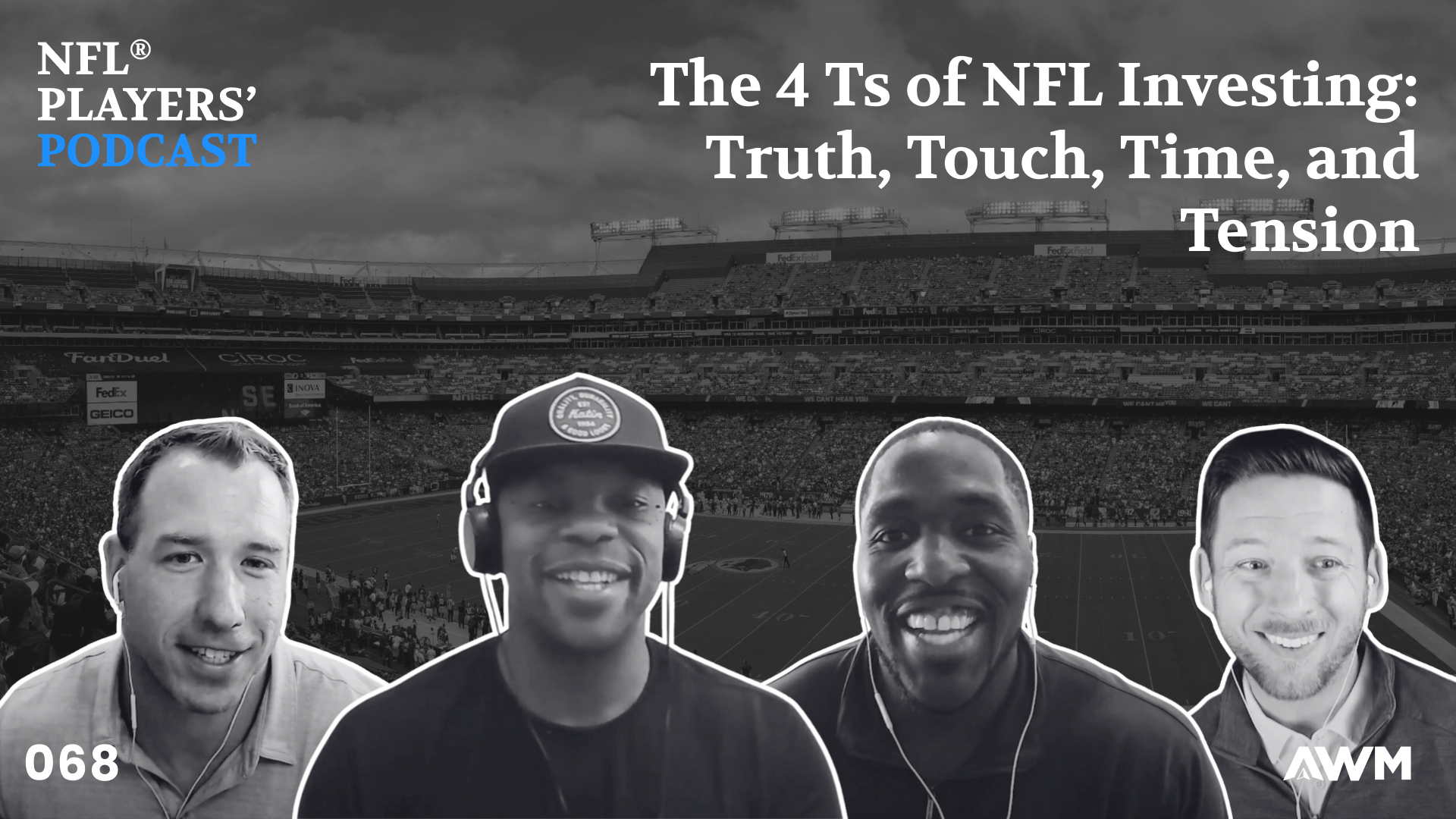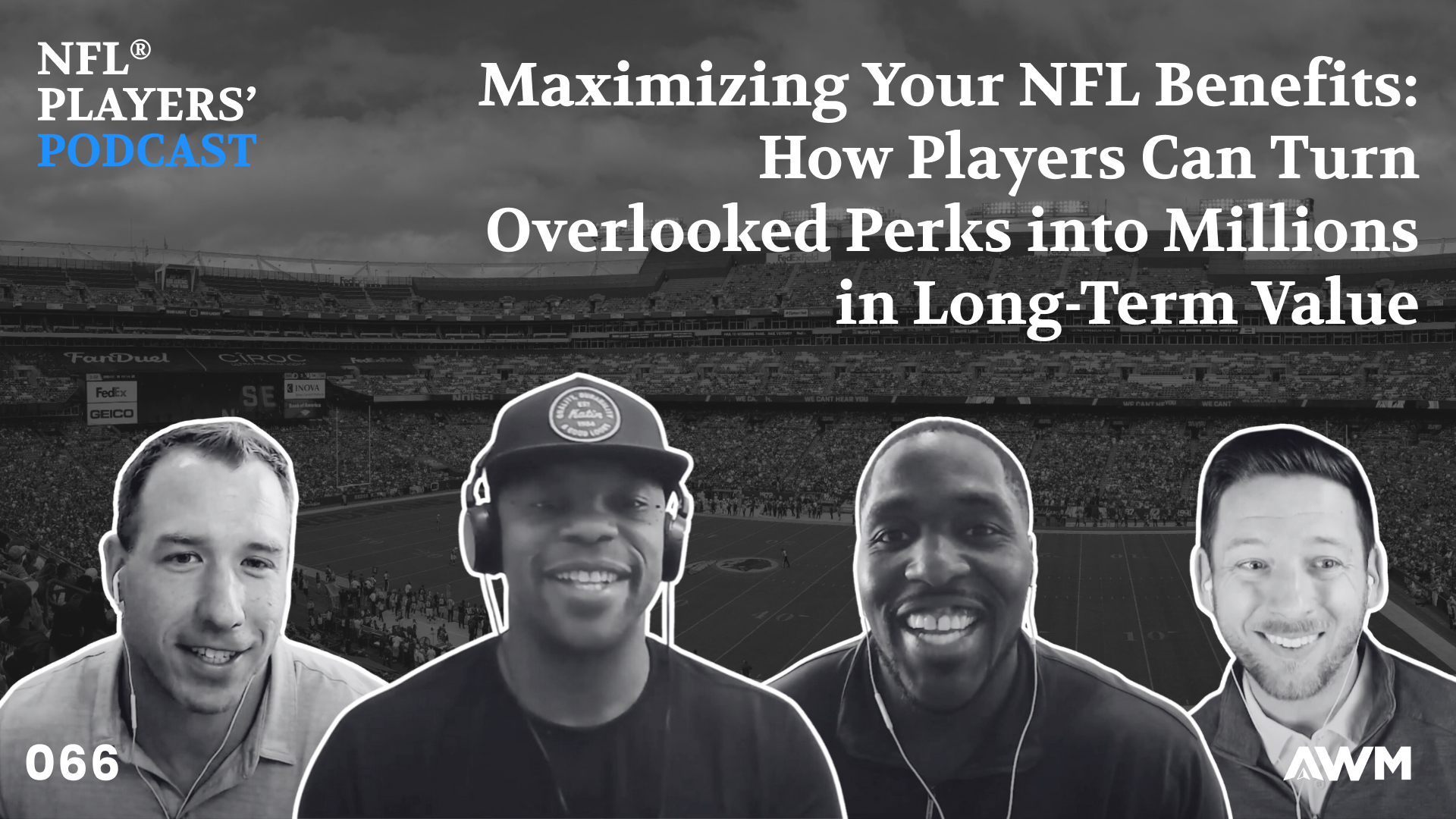The Money Game Beyond the Field: Create. Capture. Convert.

Building multi-generational wealth takes more than a big contract. Elite athletes must intentionally create value, capture it in standout contracts, and—through a disciplined, team-driven approach—convert earnings into after-tax wealth that powers a sustainable lifestyle, giving, and family legacy.

How Athletes Build and Capture Value
The journey starts with how athletes create value—a process that runs deeper than training or highlight reels. Every pro’s earning power is built on human capital: a blend of physical skill, social network, and intellectual intelligence. This mix is what teams, brands, and partners pay for. The more developed each part, the greater the opportunity to attract game-changing contracts.
Securing that first major NFL deal signals you’ve begun to capture tangible value. Still, as discussed in the episode, there’s a distinct leap from “rich” to “wealthy”—with a nod to Chris Rock’s famous observation. The second and third contracts, the true inflection points, are where athletes lock in life-altering sums. Brock Purdy’s contract, for example, is the sort of deal where headline numbers draw eyes, and financial futures are shaped.
But accumulating contracts and dollars is only one step. Once you cross the “changing your family tree” threshold, complexity ramps up. Managing these opportunities requires a team, not just a lone financial advisor. A family office steps into this role. Think of it as your personal front office: integrating tax, investment, lifestyle, and business strategy—so athletes can focus on legacy, not logistics.
In sports and in wealth, individual talent never suffices. Winning off the field means assembling a coordinated team that sees both the details and the big picture, working as your game plan architects and coaches.
The Discipline of Converting Contracts to After-Tax Dollars
The real scoreboard isn’t the headline contract—it’s how much you keep, year over year, after taxes and time. As discussed by the team, for most athletes, taxes are the single largest expense. The key is converting contracts into after-tax wealth, with structure and foresight.
For most, a guidelines-based approach looks like this: 40% goes to taxes, 40% should be saved and invested, and the remaining 20% funds your lifestyle. For high-tax states like California, the formula tightens. In Purdy’s case, 50% heads to taxes, 40% is set aside for saving and investing, and only 10% can be spent. That’s a stark reality—half the contract may be gone before anything can be enjoyed or deployed.
Zach Miller emphasized: big contracts mean big tax numbers—a reality that can cost $130 million or more in taxes on a $265 million deal. This is not a one-year concern. Ongoing, proactive tax planning is essential, extending across your career and lifetime. Estate taxes, property taxes, and residency all matter. Even which state you call home or how paychecks are allocated by the team can swing results by millions, not just thousands.
“It’s a tension to be managed,” not a problem to be solved once and left alone, as Zach framed it. Every year, your tax planning must be coordinated with your team—integrating advice across fields to ensure nothing slips through the cracks. Proactive strategies, residency planning, and year-over-year adjustments are the norm, not the exception. Without this integrated approach, missed opportunities can quietly add up to millions lost.
This is the value of a true family office. Unlike a typical advisor who might only manage investments or file taxes, a family office orchestrates the integration—connecting each lever to the next, and giving every tax dollar a purpose in the bigger game plan.
Cash Flow, Giving, and Sustaining the Legacy
With taxes managed, attention turns to how you direct what remains. The team outlined the four uses of money: taxes, spend, give, and save/invest. Winning the wealth game means excelling in each category—with discipline, intention, and vision.
Spending stands out as both freedom and risk. For an athlete with a major contract, living on $3–4 million a year is possible, but only works with the right structure and savings in place. Miss those targets, ignore discipline, and even $100 million can disappear faster than a rookie mistake. Well-structured investments convert savings into future passive income, turning today’s contract into tomorrow’s sustainable lifestyle.
The episode highlights how giving is integral to multiplying impact. As Sam Acho shared, “money is just a magnifier.” Whatever drives you before the contract—generosity, care for community, or change-making—only expands with bigger paychecks. Strategic giving now takes on a broader scope. Planning might include raising personal visibility through charitable endeavors showcased at events or aligning donations with brand partnerships to enhance both philanthropic and image-building goals.
For many, 10% or more of wealth is directed toward giving, whether through direct donations or structured vehicles like private foundations. These not only shape communities but can be aligned with smart tax planning, taking advantages of deductions, and optimizing philanthropic reach. Giving, at this level, is not just about charity, but stewardship—making sure hard-earned dollars translate to real, positive impact.
Saving and investing anchor the fourth category—yet, as Jeff Locke noted, piling up dollars in an account or “under a mattress” undermines everything built so far. Long-term success depends on disciplined investing. Maximizing opportunities means leveraging investment channels unique to family offices, accessing ventures, private equity, and options beyond public markets available only to a select few in curated networks.
Here, the family office truly separates itself by working directly with clients to align their dreams with precise financial action. Your front office listens, learns, and shapes a plan that fits your vision, then finds investment opportunities to make it reality. The approach is concerted, ensuring your pathway to sustained growth accommodates the ups, downs, and unexpected fumbles that may come your way in this extended game of wealth planning.
In every quarter and every season, the wealth game calls for response-ready agility, ensuring no moment is wasted. This is the capacity a family office cultivates: a style of preparedness that embodies championship thinking. Whether it’s balancing spending with investment gains, or optimizing philanthropic reach with tax efficiency, a coordinated approach allows both the athlete and family to thrive.
Conclusion
For the athlete prepared to create, capture, and convert value, wealth is more than numbers—it’s a strategic game managed by a team who sees the whole field. Success beyond the field isn’t about headline contracts, but a disciplined approach—tax planning, spending, giving, and investing—all guided by an all-star family office, coaching you and your family at every stage. When every dollar, relationship, and decision works in concert, your legacy takes shape—season after season, for generations.
Transcript
Share this post
Related articles
Your Family Office

We're here to help you navigate.
Our advisors are ready to serve as your Athlete Family Office.
Your Family Office

We're here to help you navigate.
Our advisors are ready to serve as your Athlete Family Office.












